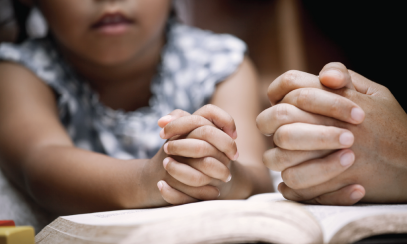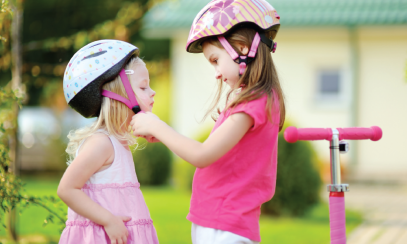“The Valley of Death"
How Do We Help Our Children Deal With Tragedy?
How Do We Help Our Children Deal With Tragedy?
Rows of Boys Scouts sitting in high-school bleachers call up images of award ceremonies. But last summer, after a tornado ripped through an Iowa Boy Scout camp and killed four teenagers, the bleachers held rows of survivors. Anguished parents had gathered in a community center while officials determined whether each child had been taken to the morgue, one of several hospitals or the school. Fourteen-year-old Trevor Ruffcom, helping out after the tornado, told a reporter from the Omaha World-Herald, “Sights I’ve seen, I’m never going to forget.” As parents, there is a longing to protect our children from anything unpleasant: vaccinations that hurt, children who tease them, unrequited love. But, most of all, we want to protect them from death and disaster. What should parents say when these images scroll across the TV or leap out from the newspaper?
“Don’t be afraid; just believe” (Mark 5:36).
One of the most horrifying aspects of the Iowa tornado was that the children were at a camp, separated from their parents. We can never promise our children that we’ll always be there in life-threatening situations. We don’t have that kind of control – as much as we long for it. But we can help our children grow in a relationship with God, who will always be there for them.
Boy Scout Thomas White told staff writers from the Omaha World-Herald that he was nearly hit by a log and “I was praying, saying, ‘Don’t let me get sucked up.’ My glasses came off, and I grabbed them. I didn’t want to die. Surprisingly, I was calm – but the adrenaline was going.” Thomas’ story shows that our bodies can be reacting with fear even as our communication with God through prayer helps maintain calm.
Address their concerns.
If you don’t answer children’s questions then they will think some topics are off limits. You want to be their source of information when they are worried. Take their ages into account when giving details. Let them know these events don’t happen very often. Explain what your family would do in a similar situation. For example, “Tornadoes are scary because the wind is so strong, but our house has a strong basement and so we go down there, say a prayer, play games and read. “Review life-saving strategies, such as what to do if a smoke detector goes off, in a serious but matter-of-fact way. Children sometimes try to hide from a fire and the gear of a fire-fighter sometimes looks frightening to a young child. Make sure the lines of communication are open so that children discuss their fears as they learn of different events in the news.



